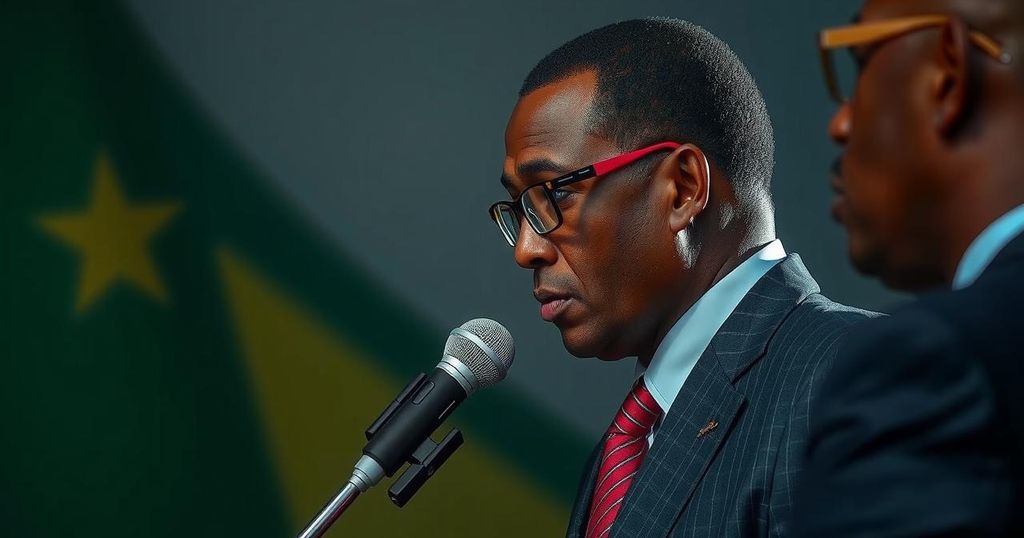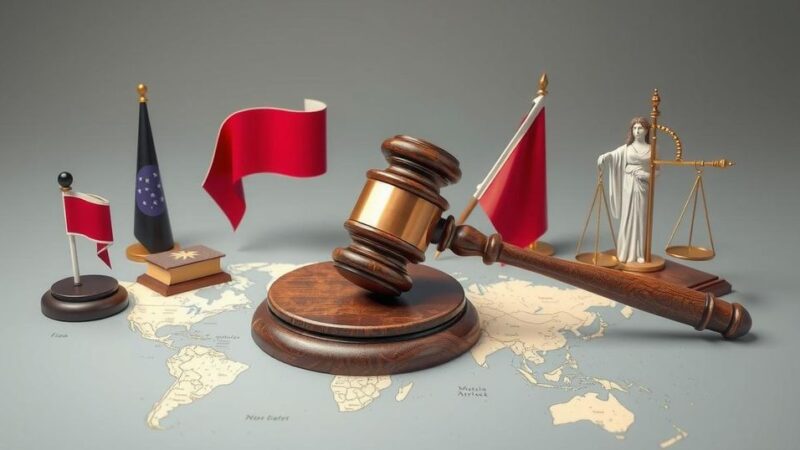In Equatorial Guinea, human rights lawyers Gemma Jones and Angel Obama have been suspended from practicing law due to political interference from the Bar Association. Their suspensions highlight the severe risks faced by legal professionals advocating for human rights in an environment where the independence of the judiciary is under threat. Calls for their reinstatement emphasize the necessity of a free and independent legal profession for justice and human rights.
In Equatorial Guinea, political interference within the national Bar Association is significantly undermining the practice of law, jeopardizing human rights, and obstructing justice. Recently, two prominent human rights lawyers, Gemma Jones and Angel Obama, were subjected to suspensions that prevent them from fulfilling their vital roles in advocating for justice and the protection of human rights. Gemma Jones, who has been actively denouncing the dire social and economic issues in Equatorial Guinea, faced disciplinary action after creating a social media call for an independent judiciary. Her suspension came shortly after efforts to bring attention to human rights abuses, illustrating the precarious situation for legal professionals advocating for reform in authoritarian environments. Similarly, Angel Obama has faced threats and suspensions for defending marginalized organizations that promote human rights, highlighting the systemic repression against legal advocacy in the region. The backdrop of this situation is characterized by a legal environment lacking independence, with the Bar Association under the influence of the political regime. Both Jones and Obama have experienced intimidation for representing individuals subjected to arbitrary detention and other human rights violations. This trend threatens not only the rights of the lawyers but also those of their clients, as there is a tangible risk that advocating for justice may result in punitive measures by the state. International human rights obligations bind Equatorial Guinea to uphold the rights of its legal practitioners, including ensuring their ability to operate independently without external influence. The severity of the situation calls for urgent action. Organizations such as Amnesty International are advocating for the immediate reinstatement of Gemma Jones and Angel Obama, demanding that the government uphold the legal framework designed to protect human rights. The authority’s disregard for the independence of the Bar Association and the repression faced by legal practitioners are pressing issues that necessitate response and reform. A justice system that respects human rights lawyers ensures that victims of violations have access to effective legal remedies. It is imperative for the government of Equatorial Guinea to recognize and restore the professional integrity of its Bar Association. The immediate revocation of the suspensions imposed on Gemma Jones and Angel Obama would demonstrate a commitment to the principles of justice and respect for human rights. Fostering an independent judiciary and legal profession is essential both for maintaining rule of law and for ensuring that citizens can freely express, assemble, and advocate for their rights without fear of reprisal or persecution. The actions against these lawyers serve as a reminder of the challenges faced by advocates for justice in environments where legal protections are routinely ignored. In conclusion, the suspensions of Gemma Jones and Angel Obama illustrate a broader pattern of repression against human rights advocacy in Equatorial Guinea. These incidents not only affect the individuals involved but also signal a perilous trend for the legal system as a whole. It is crucial for international and domestic stakeholders to emphasize the importance of a strong and independent legal profession as a cornerstone of a fair and just society. The authorities must take decisive steps to ensure that legal professionals can operate without fear and contribute effectively to upholding human rights and delivering justice for all individuals in Equatorial Guinea.
In Equatorial Guinea, the judicial and legal systems are heavily influenced by political power, leading to a precarious environment for lawyers advocating for human rights. This interference has resulted in actions against legal professionals who pursue cases highlighting human rights violations, often resulting in suspensions and other punitive measures. The recent cases of Gemma Jones and Angel Obama illustrate the risks involved when lawyers challenge the status quo and defend the rights of marginalized individuals. The lack of legal independence compromises access to justice and undermines the rule of law, raising concerns for the international community about the state of human rights in the country.
The cases of Gemma Jones and Angel Obama underscore the critical need for an independent legal profession in Equatorial Guinea, which is currently endangered by government coercion and political influence. For a just society, it is essential for the authorities to uphold legal independence and allow lawyers to operate free from intimidation. Undoing the recent suspensions imposed on these human rights lawyers is imperative for restoring faith in the judiciary and ensuring that human rights are protected for all citizens in Equatorial Guinea.
Original Source: www.amnesty.org







